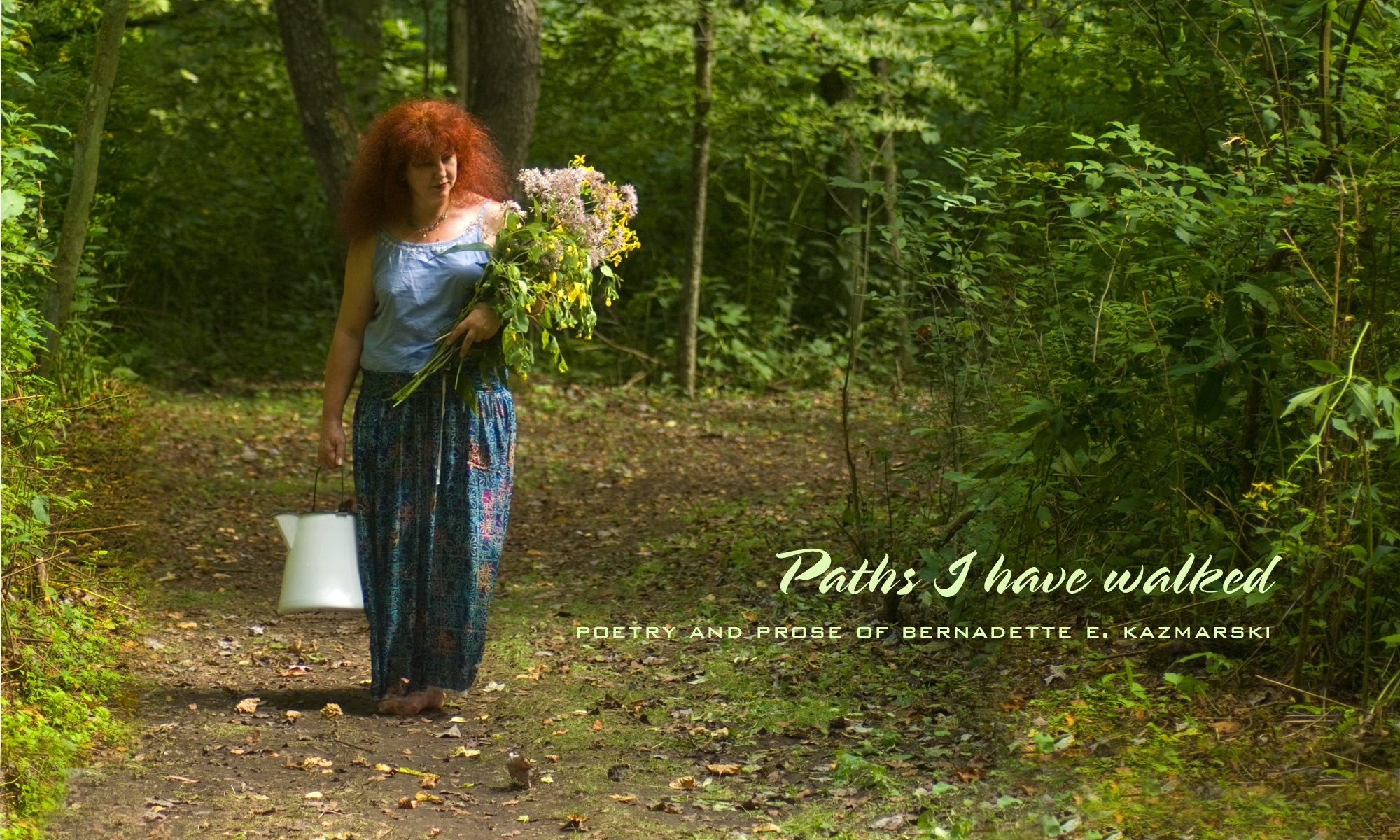This is what happens when I wake up and the snow is enchanting and I hear that a maternity hospital in Ukraine was bombed by Russia and I have to do something with all of it.
Someday They Will Sing
where have all the flowers gone,
long time passing,
young ones have picked them,
every one of them
gone for soldiers,
returned to graveyards
everyone,
and graveyards gone to flowers,
long time ago,
and again and again
and again
when will they ever learn,
why did they never learn
Copyright ©2022 Bernadette E. Kazmarski
(#SlavaUkraini, and for all other people oppressed by war.)
I drafted the poem on the trail on Saturday, what happens when I come face to face with nature on a trail feeling the earth beneath my feet and the sun and breeze filling my head and my thoughts. I have been singing the song since the invasion began and was singing as I walked along, and every so often wrote another line of my thoughts.

The song “Where Have All the Flowers Gone” was inspired by a traditional song of the Cossacks, Slavic peoples who lived in rural regions of both Ukraine and Russia, though the source of the song is Ukrainian. Pete Seeger adapted some of the lyrics and wrote the first three verses in 1955, Joe Hickerson wrote the rest in 1960.
It once was that men marched off to war while women stayed behind and tended the flowers in the graveyards, but I have heard a few folk singers (can’t remember) who have sung lyrics updated to reflect that young women become soldiers as well as young men, in fact, young people of all sorts become soldiers. With both society’s norms and folkways and beloved folk songs, breaking the mold can be difficult, but I could finally feel an update was natural.
I watch the creative soul of Ukrainians in this fight, so many musicians, artists, poets, writers, playing piano at the borders, making art to describe the conflict and their opposition, making Molotov cocktails instead of beer, a brass band of soldiers standing in fatigues to play the Ukrainian national anthem around the spot where a Russian missile hit, and the least I can do is awaken my own, possibly my inheritance from my Ukrainian ancestors, to reflect my support.
Where Have All The Flowers Gone https://en.wikipedia.org/wiki/Where_Have_All_the_Flowers_Gone%3F
Read more: Essays ♦ Short Stories ♦ Poetry
![]() All Rights Reserved. ♦ © Bernadette E. Kazmarski ♦ PathsIHaveWalked.com
All Rights Reserved. ♦ © Bernadette E. Kazmarski ♦ PathsIHaveWalked.com
•
SUPPORT MY WRITING






